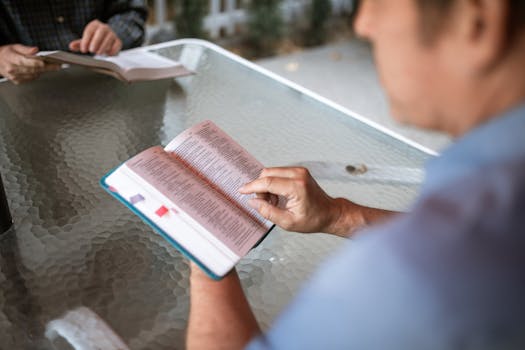The world as we know it is filled with suffering, immense pain, and so many circumstances that are beyond our ability to accept. No day is free from struggle, for, as the Bible puts it,
“We do not wrestle against flesh and blood, but against principalities, against powers, against the rulers of the darkness of this world, against spiritual wickedness in high places”
(Ephesians 6:12).
So much of what goes on every day is beyond us, beyond our mortal control. The only power we have is in how to respond to it.
History of the Serenity Prayer
The earliest version of the serenity prayer was written by German theologian Reinhold Niebuhr in 1932, and it was distributed during World War II. The prayer, which Niebuhr used in many of his speeches, has been modified over the years and is a staple in many Alcoholics Anonymous (AA) materials.
The original prayer goes as follows:
“God, give me grace to accept with serenity the things that cannot be changed, Courage to change the things which should be changed, and the Wisdom to distinguish the one from the other.
Living one day at a time, Enjoying one moment at a time, Accepting hardship as a pathway to peace,
Taking, as Jesus did, This sinful world as it is, Not as I would have it, Trusting that You will make all things right,
If I surrender to Your will, So that I may be reasonably happy in this life, And supremely happy with You forever in the next. Amen.”
What Can We Learn from the Serenity Prayer?
1. Surrender is a place of strength.
We are told quite often that we get to choose what happens to us. Surrender is often viewed as a failure and an acceptance of defeat. What the serenity prayer tells us, however, is that we have the choice to decide what has the power to control us. “Accept[ing] with grace” the things we cannot change is a position of trust.
It is an admission that, while we would love to have total control, we choose instead to accept that God, omniscient and omnipotent, has ultimate control over the things we cannot change.
2. Hardship is a path to peace.
The human body does not love suffering in any form. We have perfected the art of finding solutions to every problem that demands we stretch the limits of our will. We now have same-day deliveries because we simply want our shopping when we order it, and we have multiple synced notifications so we never have to miss any information or feel left out.
This, however, has created in us such turmoil that we are relatively more unhappy than we were back in the 1900s without all this access. What if the path to peace is marred by hardship? What if hardship in its many forms allows us to appreciate the small victories?
The serenity prayer is a great mirror to Philippians 4:6-7:
“Do not be anxious about anything, but in every situation, by prayer and petition, with thanksgiving, present your requests to God. And the peace of God, which transcends all understanding, will guard your hearts and your minds in Christ Jesus.”
Philippians 4:6-7
We would benefit from taking a step back and reflecting on the words of Niebuhr. God delights in giving us peace. It would do us good to whisper these words to our ever-wandering souls and remind our hearts that the master of the universe has it all under His control.






















Leave a Comment